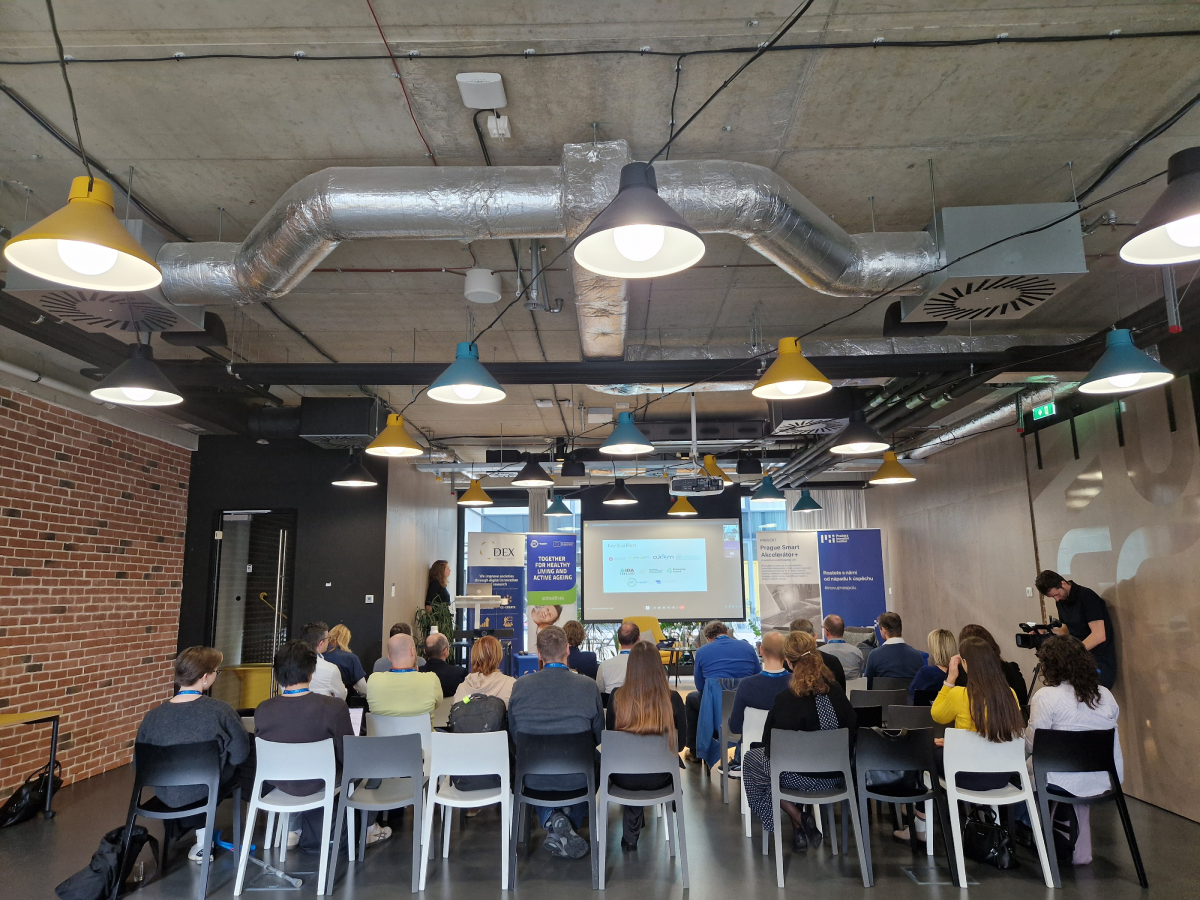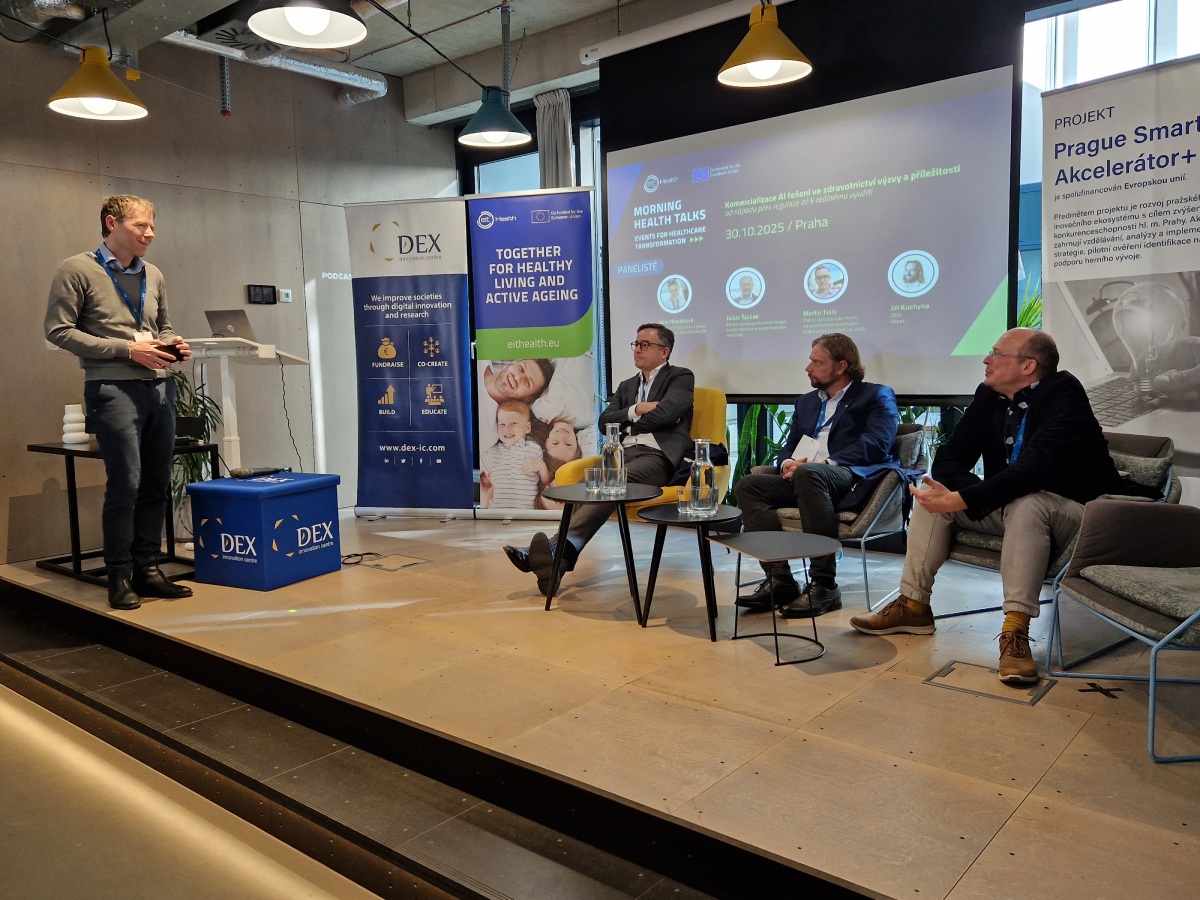
- Search term must have more than 2 characters.

AI is transforming diagnostics, patient care and research, yet it also raises questions of trust, ethics and responsibility. Experts from hospitals, startups and public institutions met in Liberec to discuss how to balance innovation with safety and how to ensure that technology supports, rather than replaces, medical professionals.
Academic Ecosystems as Catalysts for Innovation
The programme opened with Dr. Natalie Walsh from the University of Galway, who showed how a university ecosystem can turn research outcomes into successful startups and tangible benefits for society. She presented Luminate Medical, a MedTech company developing wearable devices for chemotherapy patients to help prevent side effects such as hair loss or neuropathy. Her presentation demonstrated that combining research excellence with an entrepreneurial mindset can significantly accelerate the journey from laboratory to bedside.
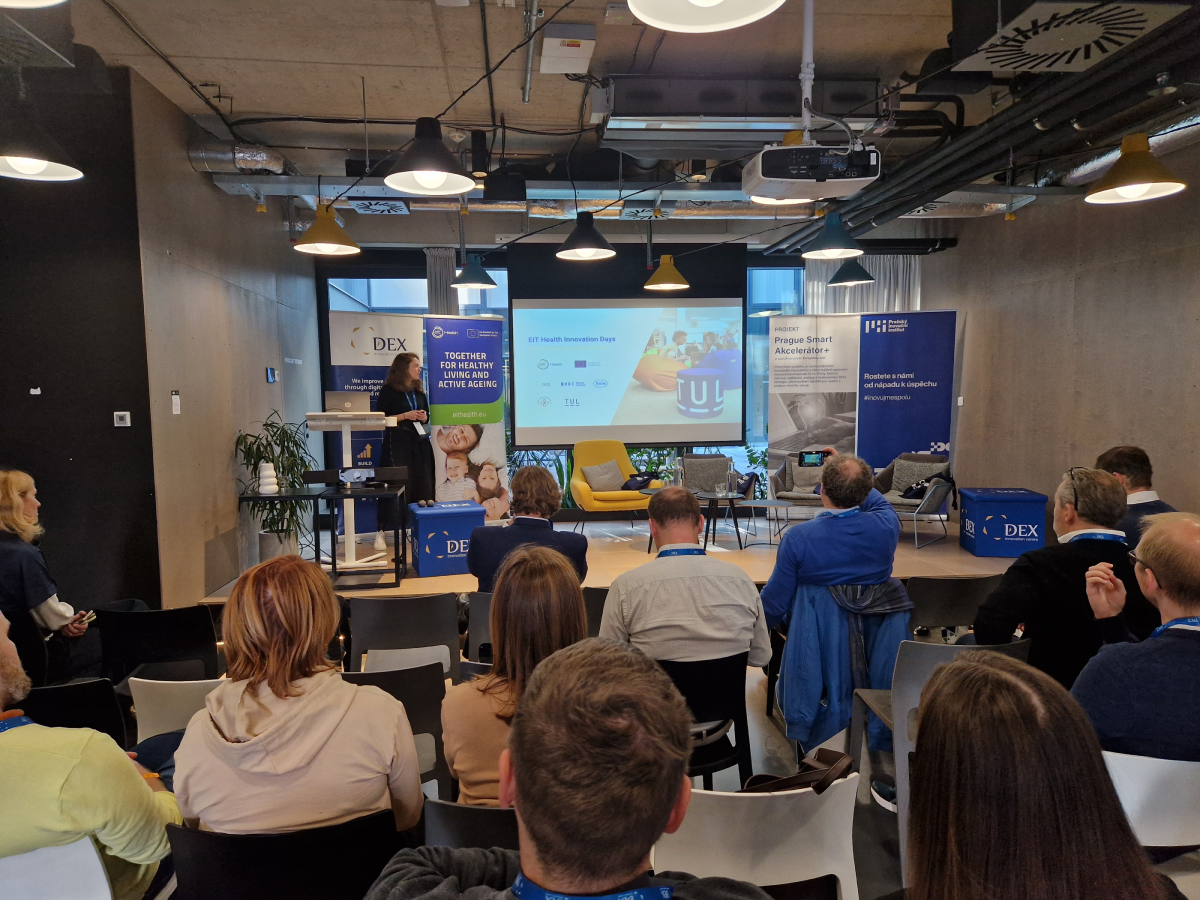
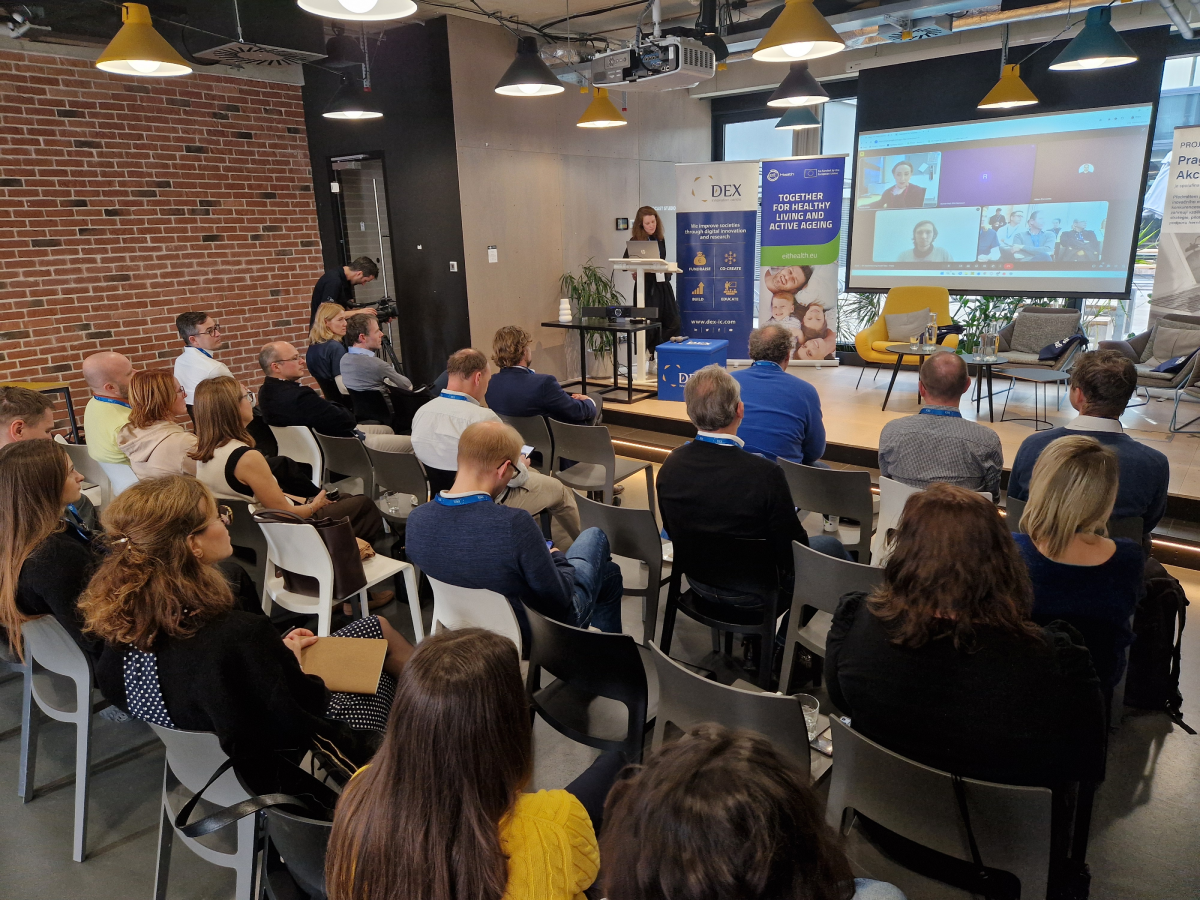
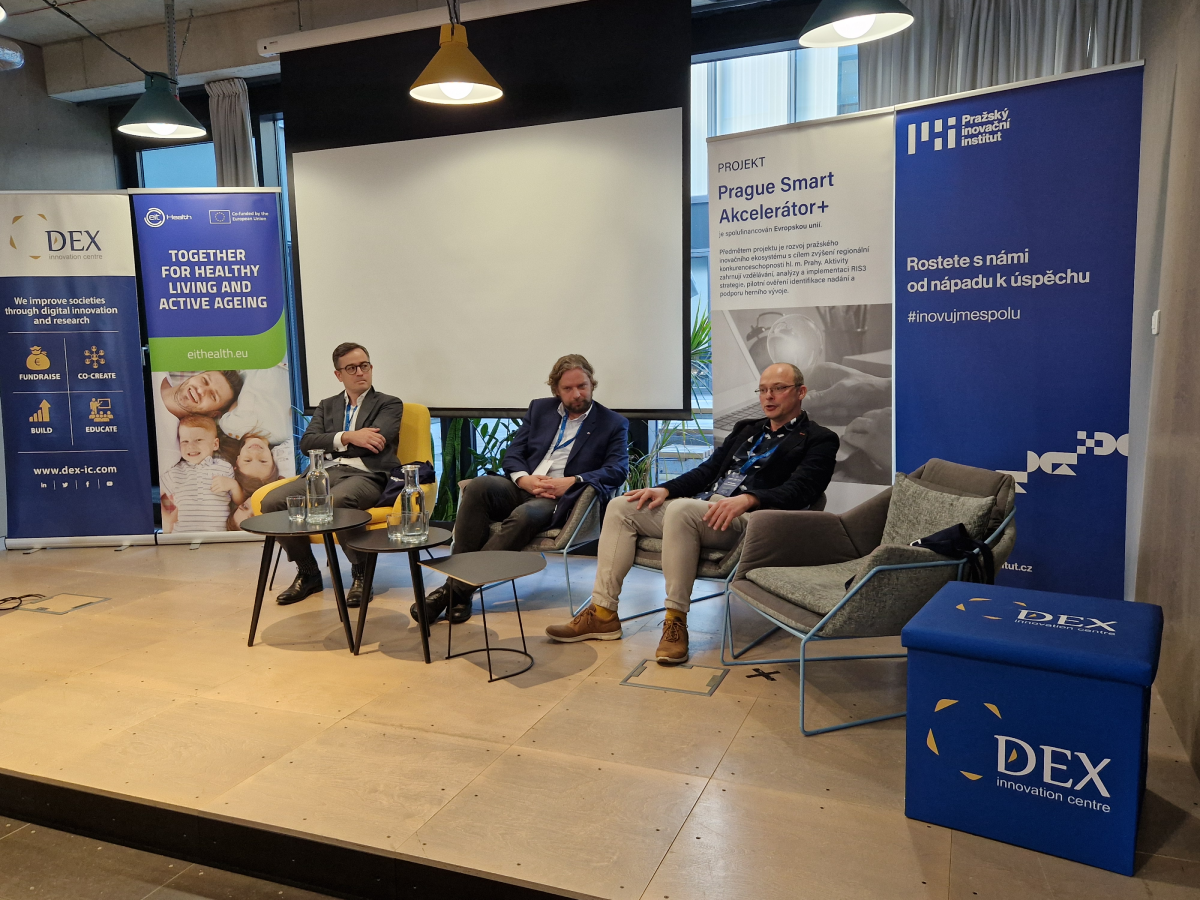
Following her, Dr. Markus Wolfien from TU Dresden stressed the importance of sharing clinical experience and treatment data among institutions to improve precision medicine. He noted that connecting insights from oncological boards across hospitals could help doctors choose the most effective therapy for each individual patient.
Ethics and Trust at the Centre of Debate
The panel discussion, moderated by Jan Kubalík, CEO of DEX Innovation Centre, brought together Martin Tulis from the State Institute for Drug Control (SÚKL), Jiří Kuchyňa from Aireen, and Jan Martínek from the Regional Hospital Liberec. The debate explored how AI can support doctors in diagnostics and administration while maintaining ethical standards and patient data protection.
Martin Tulis highlighted the value of open dialogue about both the benefits and the limits of AI: he appreciated that “the discussion covered not only the positives but also the negatives, and that people today have realistic expectations. They can critically assess where AI can and cannot be used,” adding that he looks forward to the further development of this technology. For Jiří Kuchyňa, the event stood out for its interaction with the audience. “It was inspiring to see how people across the healthcare sector perceive both the opportunities and the risks of AI. The discussion showed that awareness and openness are clearly growing,” he said.
Jan Martínek, who attended Morning Health Talks for the third time, underlined the importance of connecting diverse professional communities: “I always appreciate the mix of perspectives. Meeting experts from hospitals, academia and public authorities is crucial because it helps find a common context and understanding across healthcare.”
Connecting Perspectives for Responsible Innovation
Throughout the discussion, participants agreed that AI should be seen as a tool to assist medical decision-making, not a replacement for human expertise. Its potential lies in increasing efficiency, reducing administrative workload and enabling more personalised care – but only when implemented responsibly.
As several speakers pointed out, AI adoption requires much more than technical readiness. It depends on trust, clear communication between developers and practitioners, and strong ethical and legal frameworks. When these elements come together, artificial intelligence can become a reliable assistant in clinical practice, allowing doctors to focus more on what truly matters – their patients.
Towards Smarter and Safer Healthcare
“Morning Health Talks are designed to bring together people from different sectors – hospitals, academia, startups and public institutions – to discuss real challenges and exchange solutions,” said Helena Jurašková from DEX Innovation Centre. She added that “artificial intelligence is a great example of a technology that can transform healthcare if applied thoughtfully and collaboratively. Our role is to connect these perspectives and help turn innovation into real benefits for patients.” By fostering collaboration between innovators, healthcare professionals and policymakers, initiatives like EIT Health Morning Health Talks continue to build the foundation for a smarter, more connected and patient-centred European healthcare system.
